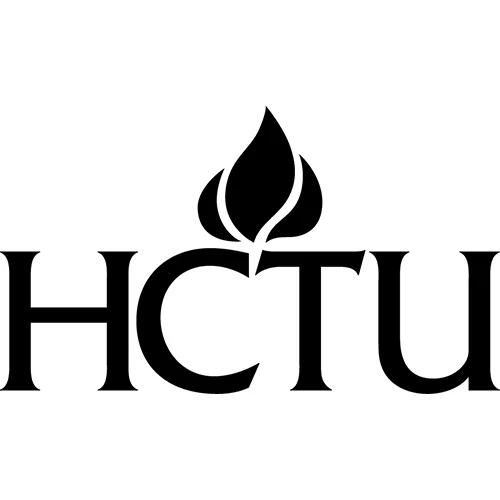a report live-blogged by Andy Naselli
Craig Carter is Professor of Religious Studies at Tyndale University College and Seminary in Toronto. He blogs at “The Politics of the Cross Resurrected.” Here’s how the Henry Center advertised this address given on the campus of Trinity Evangelical Divinity School:
Title: Is the Evangelical Left a Viable Alternative to the Religious Right?
Is the “Religious Right” finished? In serious decline? Temporarily dormant? Evangelicals appear to be unsure. Many pollsters and pundits claim that younger Evangelicals increasingly lean to the left in politics and the recent US election cycle saw the rise of a new “Evangelical Left,” led by Jim Wallis, Brian McLaren and Tony Campolo. Let us suppose that the Religious Right is in decline, and that many Evangelicals are swinging leftward as a result of dissatisfaction with the over-identification of Evangelicalism with the Republican Party. This scenario raises important questions about the future of Evangelicalism which this lecture will address.
Carter changed the title to this: “Augustine and the Secular in Christendom and Modernity.”
This address is available via live-stream.
*******
Social Justice in Modernity
Carter, who considers himself theologically conservative and politically liberal, almost thought of entitling this talk “How I Lost My Faith in ‘Social Justice.'” He’s been influenced from both the left (Ron Sider, Jim Wallis, John Howard Yoder, and Karl Barth) and the right (Francis Schaeffer, Alexander Solzhenitsyn, Tom Oden, and John Paul II).
Carter is disappointed with the reaction to his book Rethinking Christ and Culture: A Post-Christendom Perspective for several reasons.
- It tended to get swallowed up in the widespread shift to the left during the Bush years.
- The interpretation of Yoder’s thought was trending toward theological liberalism.
Recent events have caused Carter to doubt his faith in “social justice.”
- The evangelical left has supported Barack Obama’s statist agenda.
- The secular left has disgracefully treated Sarah Palin.
- The Orwellian-named “Human Rights Commissions” has persecuted Christians in Canada.
What does Carter mean by “social justice”? It’s an interconnected set of beliefs.
- Equality is the highest goal of society.
- Equality is best defined in terms of equal economic opportunity.
- Natural inequality must be overcome by human will.
- Individual freedom must be sacrificed in the pursuit of equality.
- The rule of law must be sacrificed in the pursuit of equality.
- The state is responsible to create equality.
Is the pursuit of “social justice” a socialist project? No, it’s a “modern” project, i.e., a project of the enlightenment, which produced two great systems of political economy: capitalism (freedom) and socialism (equality). Going back and forth between the left and right of modernity is not a helpful way to critique modernity. Augustine stands outside of modernity.
From “Orthodox Anabaptism” to “Augustinian Conservatism”
Carter used to call himself an Orthodox Anabaptist, but now he prefers the label Augustinian conservative. The rest of this lecture deals with Augustine.
- Augustine became an amillennialist. He embraced a more sober, realistic view than the one that got caught up in the triumphalism of the day. Why? The key to Augustine’s working his way free of his early eschatology was his biblical interpretation.
- Prior to Augustine, there was no such thing as the secular. Something was either sacred or profane. There was no neutral ground. The idea of the secular makes possible individual liberty, religious freedom, free enterprise, personal responsibility, the rule of law, natural law, limited government, and the division of powers.
- For Augustine, the secular is (1) the invention of Christianity; (2) not evil; (3) this world during this age and contains the church and human institutions like Rom; (4) is grounded in an eschatological tension that prevents us from seeing any human institution as either completely good or completely evil.
- Christendom tended to distort Augustine’s thought. Its constant temptation was triumphalism in which the church brought the state under church-control.
- Augustinianism vs. Triumphalism:
Augustinianism:
- There are four entities: church, state, city of man, city of God.
- The church is on a pilgrimage toward the city of God.
- Church and state may reflect elements of both the city of God and/or the city of man.
Triumphalism:
- There are only two entities: (1) city of God/church/political structures ruled by the church and (2) city of man/political structures not ruled by the church.
- To oppose the church is to oppose the city of God.
- The church becomes violent as if judgment day had already come.
- The evangelical left is critiquing Christendom but not modernity.
- Modernity has distorted Augustine’s “the secular” into “secularism.” Both Christendom and modernity have the same root problem: a false eschatology.
- The pursuit of “social justice” is statist project. The logical end result is something like Aldous Huxley’s Brave New World.
- The statist project is well-advanced in Europe, less so in Canada, and much less so in the US, but the election of Obama has reinvigorated the politics of what Jonah Goldberg called “liberal fascism” (in his recent book of that title).
- Augustine vs. Modernity:
Augustine:
- Original sin means no utopianism.
- The state is neutral and dangerous.
- The secular is potentially common ground for Christians and others.
- Our real hope is the second coming of Christ and the kingdom of God.
Modernity:
- The perfectibility of man means progress.
- The state is the hope of the world.
- Secularism says that there is nothing but the material world, and religion is private superstition.
- [missed this]
Concluding Thoughts
- The evangelical left is assimilating itself to the modern project of statism by its fixation on social justice. This will lead to the loss of its ability to prophetically critique the modern project.
- The dehumanizing of man in the “brave new world” of modernity must be critiqued, and only a conservative politics rooted in Augustinian theology can do it.
- There is no point in being fixated on Christendom today. What needs to be challenged is the modern state that seeks to usurp the place of God and close down the neutral space between church and state in which Christians have influenced culture for the public good.





Comments
Be the first one to make a comment!